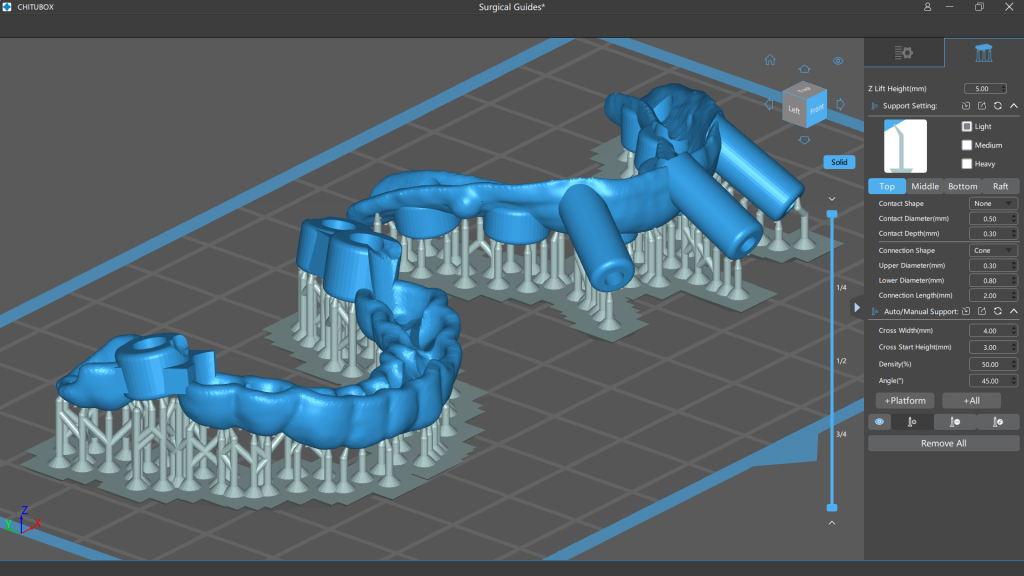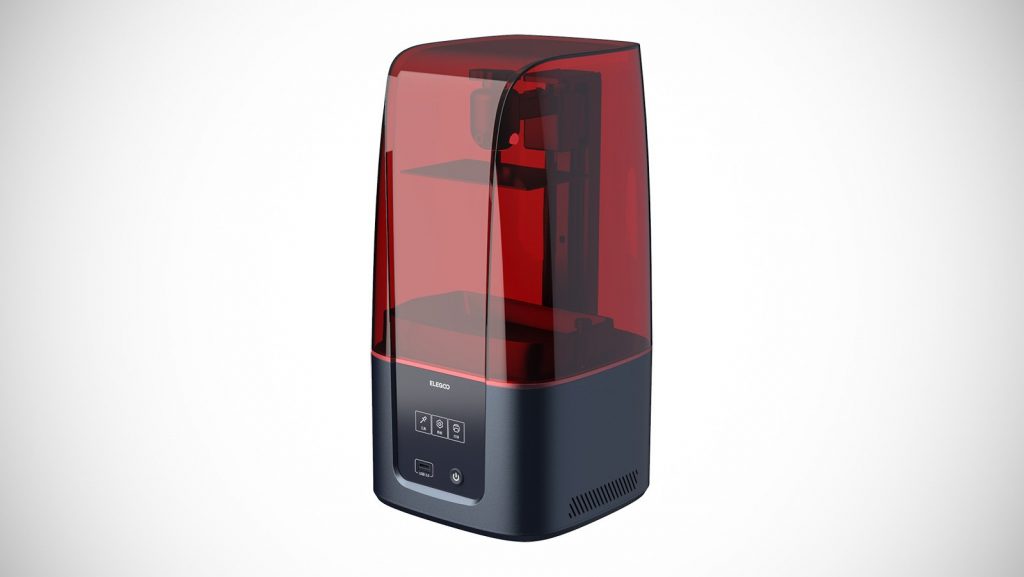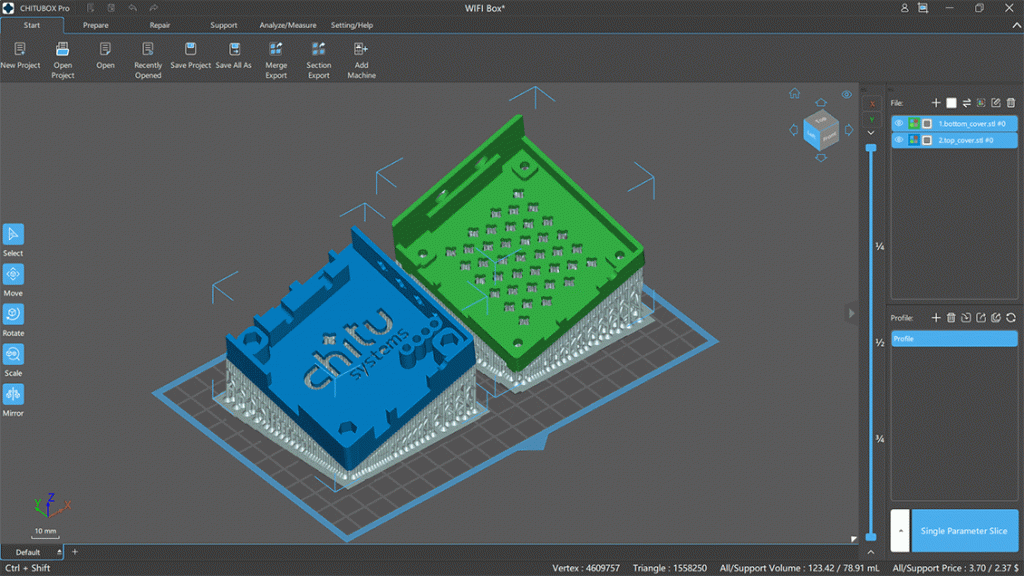The nominations for the 2021 3D Printing Industry Awards are now open. Who do you think should make the shortlists for this year’s show? Tell us now before next week’s deadline.
If you’re into resin 3D printing, you’ve probably heard of the ChiTu Systems commotion by now.
Based in Shenzhen, ChiTu Systems develops the boards that power many of the most popular resin 3D printers on the market, including systems developed by Elegoo, Phrozen, and EPAX 3D. ChiTu Systems is also the company behind Chitubox, which is one of the most commonly used resin slicers out there today. The firm recently rolled out Chitubox Pro, a paid version of the Chitubox Basic slicer with additional CAD file format compatibility, new auto support functionality, and more. Chitubox Pro comes at a cost of $169 per year.
In the midst of the Pro rollout, ChiTu Systems encrypted some of its newer LCD boards to only work with its new ctb file format, a format that can only be generated using either Chitubox Basic or Chitubox Pro. This means that some consumers using ChiTu-based resin 3D printers could only slice their 3D files using the Chitubox slicer, whereas previously they could utilize third-party alternatives such as Lychee Slicer and PrusaSlicer.
Naturally, this kicked off quite the community uproar, with consumers far and wide expressing disdain for the decision to encrypt the boards. Unfortunately, there’s still plenty of confusion regarding the specifics of the encryption, such as which printers will be affected and in what way.
I spoke with ChiTu Systems to clarify the information (and misinformation) surrounding the locking of the boards.

Which 3D printers are locked into using Chitubox?
So which 3D printers are affected by the ctb encryption? ChiTu Systems told 3D Printing Industry that printers running the company’s new higher-resolution boards (resolutions of 4K+) will need to have their files sliced in either Chitubox Basic or Chitubox Pro. This is because the ctb file format was developed specifically for those new high-resolution boards and can only be generated using Chitubox. Systems running the 4K+ boards include the Elegoo Mars 3, the Phrozen Sonic Mega 8K, and the EPAX E10-5K.
Older systems with sub-4K LCD resolutions like the Elegoo Mars 2 Pro can continue using third-party slicers and will not be locked into Chitubox. However, ChiTu still recommends updating the firmware of these systems to use the latest version of Chitubox Basic (V1.9.0) as it offers new features such as resting time and TSMC (Two-Stage Motion Control).
It’s worth noting that users can still use third-party slicers to support and orient their models and export the files as STLs, which can then be imported into Chitubox. For the affected printers, the actual slicing of the files will still need to be done in Chitubox, however.
The full list of Chitubox-supported 3D printers can be found here.

Will anyone be forced to use the paid Chitubox Pro slicer?
Back in early July 2021, 3D printing YouTuber Uncle Jessy released a video titled ‘Will you be forced to use Chitubox Pro?’. The video covered the locking of the ChiTu boards, with Uncle Jessy stating, “It appears like ChiTu Systems will be forcing you to use Chitubox Pro if you want to slice prints on new resin 3D printers for $169 a year”. With 184K subscribers to his name, Uncle Jessy is certainly a prominent voice in the 3D printing community, so it’s not hard to see how this caused a stir.
Thankfully, this turned out to not be the case. No ChiTu-based 3D printers will be forced to use the subscription-based version of the slicer. The confusion stemmed from a miscommunication issue that ChiTu has now taken responsibility for. For reference, all new 4K+ printers currently require either Chitubox Basic V1.9.0 or Chitubox Pro to run.
ChiTu told 3D Printing Industry, “There was a misunderstanding and we didn’t make things clear enough.” The company goes on to explain that V1.9.0 was not yet ready when some users received their new 4K+ printers from the manufacturers. Upon testing the printers, users found that Chitubox Basic V1.8.1 or earlier didn’t work with these printers, leading them to believe that Chitubox Pro was the only option. Now that Basic V1.9.0 has been rolled out, those printers should be usable without the paid slicer.
The company has also confirmed that Chitubox Basic will be free to use forever and will continue to be supported with patches and updates.

What is the Chitubox ctb SDK?
Desktop 3D printing is almost synonymous with the open-source community. We’re so used to free software at this point that a company going against the grain and closing off a product that was once free is enough to warrant the pitchforks and torches. In this Reddit poll, almost 90% of respondents said they would not buy a ChiTu-based resin 3D printer if it meant that they were locked into using just the Chitubox slicer. This petition for ChiTu Systems to unencrypt its ctb file format also appeared recently, and has garnered over 860 signatures.
In response to the negative community reaction, ChiTu Systems announced that it would be releasing a Chitubox ctb software development kit (SDK). According to the company, the free SDK will be a file format exchange tool that will allow other slicers to export ctb files directly, meaning those locked printers theoretically shouldn’t be locked anymore.
The SDK is yet to be released but Elegoo, a close partner of ChiTu Systems, has already issued a statement confirming its existence. Elegoo writes, “We have had a joint preliminary communication with Lychee and Chitubox: Lychee will conduct internal tests on the SDK provided by Chitubox and will eventually determine the subsequent cooperation scheme depending on the test results. We also hope and welcome more community members, developers, and software manufacturers to join the testing process.”
Admittedly, the hurried launch of the SDK feels like damage control, but it’s certainly better than nothing. Whether it will even solve the problem or win back the hearts of resin 3D printer users remains to be seen. If anything, the entire ordeal should be a lesson in respecting the roots of a community. Consumer 3D printing wouldn’t be where it is if it weren’t for open-source and Chitubox has contributed massively to this since its launch in 2017. But anti-competitive practices like locking a product down with a proprietary ecosystem can only do harm by stifling innovation.
Subscribe to the 3D Printing Industry newsletter for the latest news in additive manufacturing. You can also stay connected by following us on Twitter, liking us on Facebook, and tuning into the 3D Printing Industry YouTube Channel.
Looking for a career in additive manufacturing? Visit 3D Printing Jobs for a selection of roles in the industry.
Featured image shows Chitubox, one of the most widely-used resin 3D printer slicers out there. Image via ChiTu Systems.


